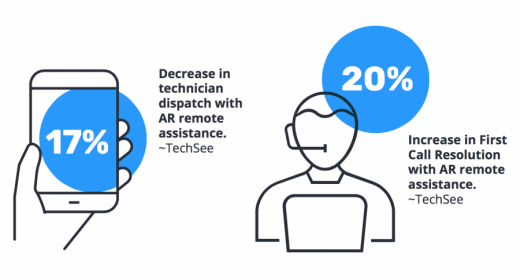How Augmented Reality (AR) Continues to Transform Customer Experience?
How Augmented Reality (AR) Continues to Transform Customer Experience?
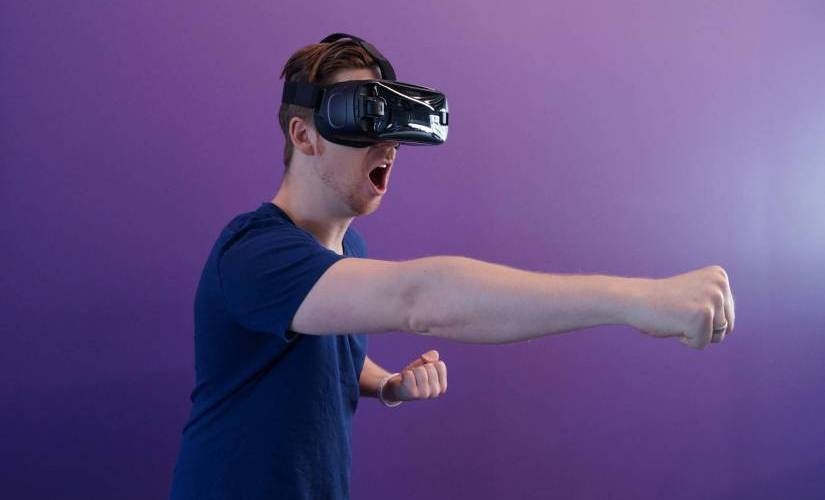
Augmented reality (AR) is continuously paving the way for more engaging interactions between businesses and their target customers. In more ways than one, AR-based customer experience can ensure increased customer satisfaction and business conversion.
According to a study, a whopping 71% of customers have very favorable opinions about AR in the shopping experience. They say it would urge them to buy from the store more often.
Augmented Reality (AR), which works as an overlaying aspect over the appearance of the physical objects and the world at large, can enhance the perception of the real world and thus can revolutionize the customer and shopping experience.
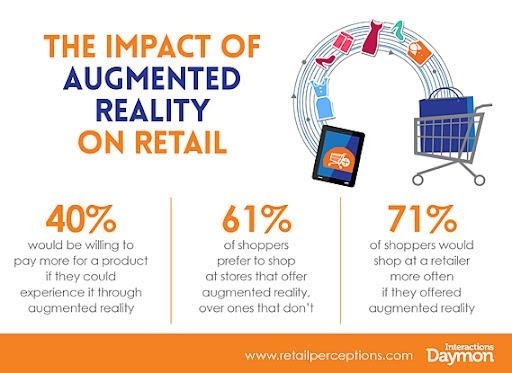
Source: retailperceptions
With the present mobile support for a three-dimensional view of the objects, delivering AR-powered shopping and customer experience across online stores and mobile stores has become more accessible.
According to a Tractica report, by 2022, the number of monthly active users for mobile augmented reality apps is likely to reach 1.9 billion.
Augmented reality-based customer experience promises a digital shopping and browsing experience transforming the entire customer journey with either immersive attributes or more meaningful interactions or more layers of information. Businesses that employ a developer to build an AR app equipped with AR experience should insist on making things easier for the customers.
Since AR, for improving the customer experience, offers so many promises, it is essential to look at the key ways AR can transform customer experience altogether.
Removes All Pre-purchase Uncertainty and Confusion
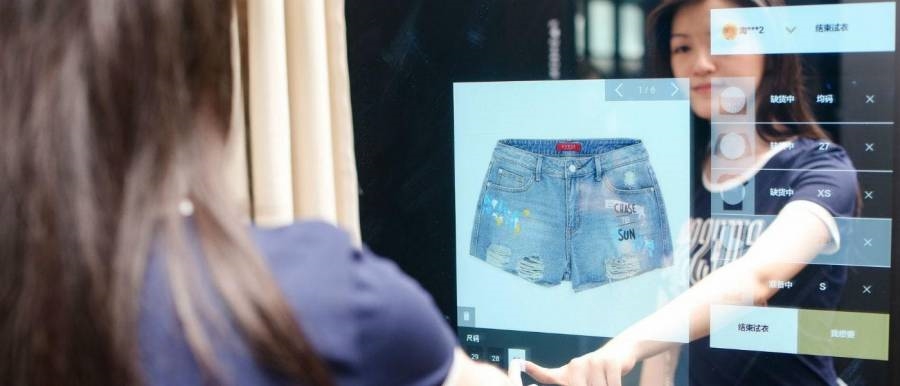
Despite the rapid growth story of e-commerce and mobile commerce stores across all niches and categories, the confusion and uncertainty about making purchases are still dominant for most customers buying online.
Since while buying online, people cannot try the products in person, the rates of product return and abandoned carts are considerably high compared to the brick and mortar stores.
This is exactly where AR can play an essential role by bridging the gap between the physical shopping experience and the online ones. Thanks to AR, online stores and mobile commerce stores can deliver a truly feel-real impression of the purchased products.
Already many stores have started to incorporate AR for the express purpose of offering an immersive shopping experience. The IKEA furniture store right on our smartphone allows you to see each furniture piece in your room.
Similarly, several garment and fashion accessory brands enable you to visualise the items on your body. For example, Gucci offers an AR trial feature so that customers can see their sneakers adorning their feet just by capturing the feet with the smartphone camera.
Delivering a Detailed Layer of Product Information
Augmented Reality (AR), besides offering an immersive and engaging way of trying the products before purchases, also ensures feting very detailed product information to the customers instantly. The best thing is this ability made AR-powered shopping popular for offline stores as well.
No wonder that in Japan, a whopping 66% of customers now expect regular brick and mortar stores to provide AR experiences. As far as understanding the production cost of the app with AR experience is concerned, this can ensure better business conversion and hence is worth the cost.
AR-based shopping and customer service can offer a lot of information instantly and guide customers navigating in a commercial space or a destination. No wonder travel companies are now utilizing AR to deliver guided tours to their customers.
While booking bus tickets or booking tickets for a sports arena or booking tickets of flights, now AR-based displays can show you the details of every seat along with the facilities to make highly informed purchases.
Already sprawling museum premises and large indoor sites in many parts of the world are helping the incoming visitors to navigate their ways with augmented reality-based interactive maps. Airliners can also guide their customers to navigate to the right gates in quick time.
Adding More Value Through Interactive Packaging
In a multitude of ways, augmented reality (AR) is making a positive impact on customer service, starting from pre-sale orders to the actual purchase experience. Interactive packaging is the latest example of this impact.
When scanning the product packages with their smartphone camera, customers can see very detailed and multilayered visuals with a lot of additional and helpful information. This results in more purchase decisions for the customers.
Heinz uses AR-based packaging to allow customers to get a lot of helpful information when purchasing tomato ketchup, an excellent example of this AR-powered interactive packaging.
There is no dearth of brands that allow customers to scan the QR code to get more detailed information about the products they are going to purchase. In business-to-business (B2B), customer communication can be highly useful. Instead of carrying brochures, visiting cards, or business presentations, you can allow your audience to scan a code to get the details.
Futuristic AR Based Dining Experience
For food and restaurant chains to receive a continuous flow of new customers and retain old customers, providing a smooth and frictionless experience became the established norm. Augmented reality (AR) in the food and beverage industry has already proved to boost customer engagement and improve brand loyalty.
There are already AR-based menus that are transforming food ordering for customers. Besides offering interactive 360-degree visuals of the food items, the latest AR-based food menu provides multiple layers of information and interactive overlays for the customers to customize before placing the orders.
Thanks to AR scanning, the food package labels have also become more accessible than ever before.
AR Powered Travel and Hospitality
If one industry we need to name has received the most significant impact of AR technology, none other than the travel and hospitality industry. AR-powered information overlays or navigational guidance appearing right on the smartphone screens completely revolutionized the traveler experience.
The Interactive virtual tours of travel sites, hotels, and restaurants offering an immersive, 360 degrees interactive visual of the sites and ambiance of premises added value to the travel experience in a never-before manner.
AR is also ensuring a highly reliable travel guide offering route and navigation guidance in real-time. Last but not least, modern translation apps providing a real-time translation of displayed signs is another excellent example of AR’s impact on the travel experience.
AR to Revolutionize Post Sales Support 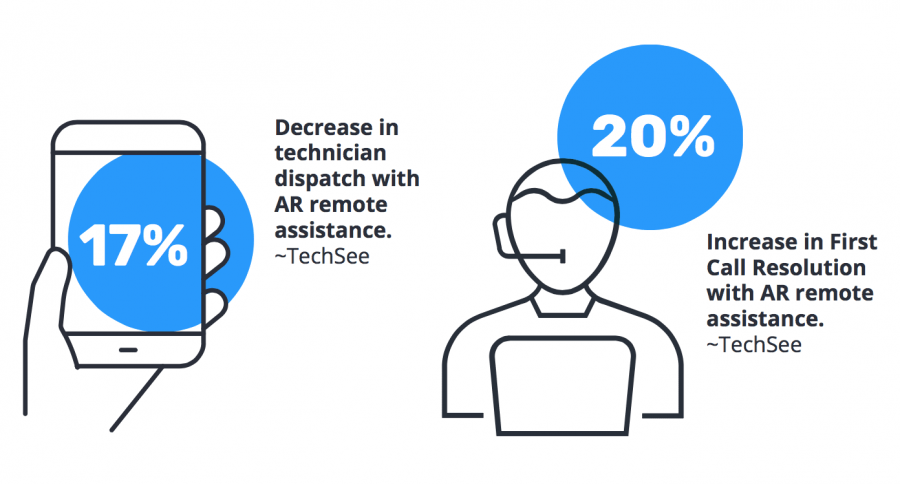
Source: techseedotme
In today’s competitive business environment, every brand needs to establish its reliability through robust and uncompromising post-sales support. Such support refers to all the activities after a product is sold or a service is offered to the customers.
Some of the crucial post-sales support mechanisms that matter for branding and customer appreciation include installation, upgrades, warranties, repairs, troubleshooting, and answering customer queries.
In this respect, remote augmented reality-based customer support has already proved to be a significant way to push changes. It helped increase call resolution at the first instance by at least 20%, and the AR-based support also helped reduce the rate of dispatching technicians by at least 17%.
AR is transforming post-sales support for brands in two significant ways through AR-powered self-service and AR-powered technical support.
- AR-based Self-service
Business brands are increasingly using AR to help customers with self-service support. On their smartphones, customers can get guidance through highly interactive visuals and media, screen overlays on technical aspects and quick FAQ answers.
- AR-based Technical Support
The AR-based visual support can also help customers understand the technically demanding aspects of various products, parts, the ways they function, and the particular measures of troubleshooting and problem-solving. An AR-based screen overlay can give details of all parts along with the model number, manufacturing details, versions and the problem resolution timing.
- AR-based User Manual
All those bulky user manuals written in multiple languages are already on their way to exit. They are being replaced by interactive AR-powered user manuals showing minute details of every component and how to operate a device with switches, buttons and other controls. For instance, a new car owner can take interactive visual guidance on different systems and car mechanisms after purchasing the vehicle.
Conclusion
Quite convincingly, AR has transformed the customer experience across e-commerce stores, brick and mortar stores and all other B2C and B2B interactions. AR has proved to be the most critical value addition impacting the customer experience.
The post How Augmented Reality (AR) Continues to Transform Customer Experience? appeared first on ReadWrite.
(63)

